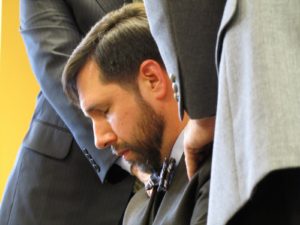
Two things contributed to this post about preaching the Gospel to ourselves.
First, after taking a 4-plus year writing rest due to research for a Ph.D. degree, I am back to putting some finishing touches on a writing project that is several years in the making. The working title is,
Preacher as Soul-Watcher: Why You and Your Parishioners Need Your Sermons.
One key Scripture that presents a theology of preaching in the local church is 1 Timothy 4:16 which instructs us:
Keep a close watch on yourself and on the teaching. Persist in this, for by so doing you will save both yourself and your hearers. (emphasis added)
Second, a couple of times within the past two weeks I have quoted Jerry Bridges who taught that we should preach the gospel to ourselves every day. I recently learned that Bridges was quoting former professor, Dr. Jack Miller.
Bridges had a profound influence on pastor Milton Vincent who wrote a little paperback, A Gospel Primer for Christians: Learning to See the Glories of God’s Love.
Milton writes:
“Over the course of time, preaching the gospel to myself every day has made more of a difference in my life than any other discipline I have ever practiced.” (p. 6, where he also cites Bridges’ book, The Discipline of Grace, as the source of the concept)
That’s saying something.
In part 1 of the book, Vincent lists 31 reasons why we should preach the Gospel to ourselves every day. Thirty-one!
How about #9 for a sample:
9. Resting in Christ’s Righteousness
“On my worsts days of sin and failure, the gospel encourages me with God’s unrelenting grace toward me. On my best days of victory and usefulness, the gospel keeps me relating to God solely on the basis of Jesus’ righteousness and not mine.” (p. 20)
I’m thinking we can relate to both, can’t we?
One way we can keep a close watch on ourselves is to preach the Gospel to ourselves every day. I have no doubt that that spiritual discipline will help ensure that our Lord receives glory in the church and in Christ Jesus (Ephesians 3:21).
Randal










